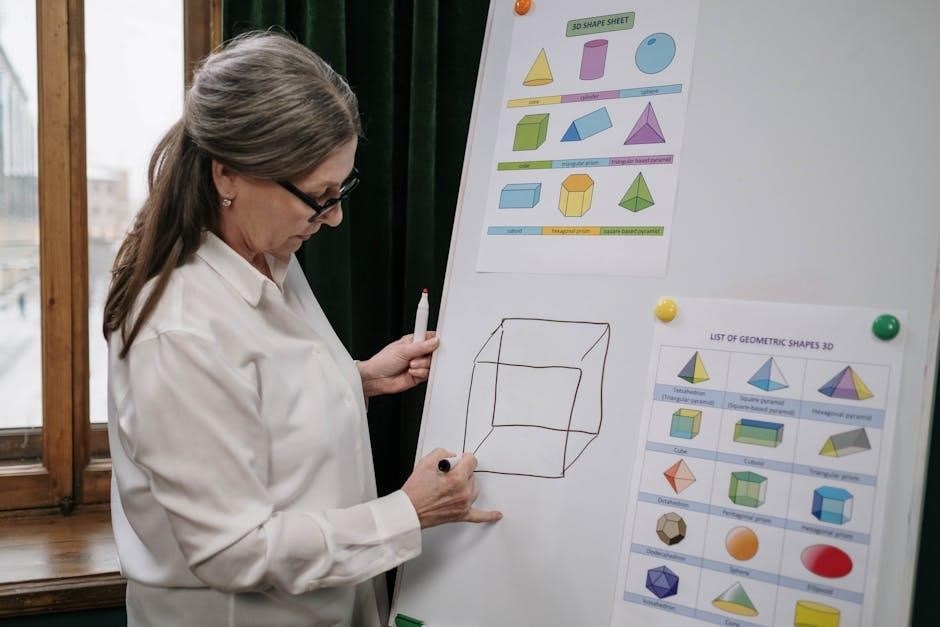
The first year of nursing education lays the foundation for future success‚ blending theoretical knowledge with practical skills. Students explore core subjects like anatomy‚ physiology‚ and microbiology‚ while developing critical thinking and ethical decision-making abilities essential for patient care.
Overview of the Nursing Curriculum

The nursing curriculum for the first year is designed to provide a strong academic and clinical foundation. It includes core subjects like anatomy‚ physiology‚ microbiology‚ and biochemistry‚ alongside introductory nursing practices. Students engage in both theoretical learning and practical training‚ with a focus on developing essential skills such as patient assessment‚ communication‚ and ethical decision-making. The curriculum also emphasizes the integration of biosciences with nursing principles‚ preparing students for hands-on patient care in various healthcare settings. Clinical simulations and lab sessions complement classroom instruction‚ ensuring a holistic learning experience. This structured approach ensures that students are well-prepared for the challenges of the nursing profession.
Importance of First-Year Nursing Education
First-year nursing education is crucial as it establishes the cornerstone of a student’s nursing career; It introduces foundational concepts‚ ethical practices‚ and essential skills necessary for patient care. This initial phase fosters critical thinking‚ problem-solving‚ and communication abilities‚ which are vital in the healthcare industry. By focusing on both theoretical and practical learning‚ first-year education ensures that students develop a comprehensive understanding of nursing principles. It also instills professionalism‚ empathy‚ and a commitment to continuous learning‚ which are essential for delivering high-quality patient care. A strong first-year program prepares students to excel in their subsequent studies and future clinical experiences‚ laying the groundwork for their professional growth and competence in nursing.

Curriculum Structure for 1st Year Nursing Students
The first-year nursing curriculum provides a balanced mix of theoretical and practical learning‚ covering anatomy‚ physiology‚ and introductory nursing practices‚ alongside general education courses like English and mathematics.
First Semester Courses
The first semester of nursing education focuses on foundational subjects that build a strong academic base. Courses include Anatomy and Physiology‚ which explores the structure and function of the human body‚ and Nursing Foundations‚ introducing core nursing concepts and ethical practices. Additionally‚ students study Microbiology‚ focusing on infectious agents and their impact on health‚ and Psychology‚ emphasizing human behavior and communication skills. These courses are complemented by English Composition and Mathematics‚ ensuring well-rounded development. Practical training begins with Lab Simulations‚ where students practice basic care skills in a controlled environment. This semester sets the stage for clinical exposure and advanced learning in subsequent years.
Second Semester Courses

The second semester of the first year in nursing education builds on the foundational knowledge gained in the first semester. Students delve deeper into Biochemistry‚ understanding the chemical processes within the body‚ and advance their studies in Psychology‚ focusing on mental health and behavioral sciences. Communication Skills are further refined‚ emphasizing patient interaction and interdisciplinary collaboration. Additionally‚ courses like Healthcare Ethics and Nursing Research are introduced‚ fostering critical thinking and evidence-based practice. Practical training continues with more complex Clinical Simulations‚ preparing students for real-world patient care scenarios. This semester bridges the gap between theory and practice‚ equipping students with the skills and knowledge needed for clinical placements in the subsequent years.

Clinical Components of Nursing Education
Clinical training bridges theory and practice‚ enabling students to apply knowledge in real-world settings. Simulations‚ labs‚ and hands-on patient care foster essential nursing skills‚ confidence‚ and professionalism.
Clinical Simulations and Lab Training
Clinical simulations and lab training are integral to first-year nursing education‚ providing a controlled environment for students to practice and master clinical skills. These sessions mimic real-life patient scenarios‚ allowing students to apply theoretical knowledge to practical situations. Simulation labs are equipped with advanced technology‚ such as patient simulators‚ to recreate various clinical settings‚ from basic care to complex emergencies. Through these exercises‚ students develop critical thinking‚ decision-making‚ and teamwork skills. Lab training also includes hands-on practice with medical equipment‚ ensuring students are proficient in procedures like vital sign assessment and medication administration. These experiences build confidence and competence‚ preparing students for actual patient care encounters.
Hands-On Patient Care Experience

Hands-on patient care is a cornerstone of first-year nursing education‚ offering students real-world experience in healthcare settings. These clinical rotations provide opportunities to interact with patients‚ observe experienced nurses‚ and participate in direct care under supervision. Students learn to assess patient needs‚ implement care plans‚ and document outcomes. Such experiences foster empathy‚ communication skills‚ and a patient-centered approach. Exposure to diverse clinical environments‚ such as hospitals and clinics‚ broadens students’ understanding of healthcare delivery. These practical experiences bridge the gap between theory and practice‚ ensuring students are well-prepared for the demands of nursing while building their confidence and clinical judgment.

Assessment and Evaluation Methods
Assessments include exams‚ quizzes‚ and practical evaluations to measure understanding and clinical skills. Passing grades in all courses are required for progression to the next level.

Exams and Quizzes
Exams and quizzes are integral to evaluating students’ understanding of nursing concepts. These assessments include multiple-choice questions‚ case studies‚ and practical scenarios. Midterm and final exams are conducted to gauge knowledge retention‚ while quizzes reinforce learning throughout the semester. A passing grade of C (2.0 on a 4.0 scale) is typically required in all nursing courses. These evaluations not only test theoretical knowledge but also the ability to apply concepts in real-world clinical settings. Regular assessments ensure students meet academic standards and are prepared for professional practice. Additionally‚ quizzes help identify areas needing improvement‚ ensuring a strong foundation for advanced coursework.
Practical Assessments
Practical assessments are crucial for evaluating students’ clinical skills in real-world settings. These include simulations‚ lab training‚ and hands-on patient care. Students demonstrate techniques like vital sign measurement‚ wound care‚ and medication administration. Assessments are conducted in controlled environments‚ ensuring safety and effectiveness. Feedback from instructors helps refine skills‚ preparing students for professional practice. These assessments emphasize the application of theoretical knowledge‚ fostering competence and confidence. Regular practical evaluations ensure students meet clinical standards‚ bridging the gap between classroom learning and actual patient care scenarios. This hands-on approach is vital for developing the proficiency needed in nursing practice‚ ensuring future nurses are well-equipped to provide quality care.
The Role of Nursing Foundations
Nursing foundations introduce students to essential practices‚ ethical considerations‚ and legal responsibilities‚ forming the cornerstone of professional nursing education and clinical competence.
Ethical and Legal Aspects of Nursing
Ethical and legal aspects of nursing are crucial for first-year students to understand. This module explores the principles of patient confidentiality‚ informed consent‚ and the legal framework governing nursing practice. Students learn about ethical theories‚ such as deontology and utilitarianism‚ and how they apply to real-world scenarios. Key topics include negligence‚ malpractice‚ and the importance of maintaining professional boundaries. The course also covers legal responsibilities‚ such as mandatory reporting and documentation standards. Understanding these concepts helps nurses navigate complex situations while upholding patient rights and dignity. By integrating ethical and legal knowledge‚ students develop a strong foundation for decision-making and professional conduct in healthcare settings.
Key Subjects in the 1st Year
The first year of nursing education focuses on core subjects such as Anatomy‚ Physiology‚ Microbiology‚ Biochemistry‚ Psychology‚ and Communication Skills‚ providing a solid foundation for future clinical practice.

Anatomy and Physiology
Anatomy and Physiology form the cornerstone of nursing education‚ enabling students to understand the human body’s structure and functions. These subjects cover the nervous‚ circulatory‚ respiratory‚ and digestive systems‚ as well as cellular biology. Through detailed lectures and lab sessions‚ students gain insights into how the body maintains homeostasis and responds to disease. Practical exercises‚ such as dissections and simulations‚ reinforce theoretical knowledge‚ preparing future nurses to assess patients accurately and deliver effective care. Understanding these concepts is crucial for developing clinical skills and addressing health challenges in real-world settings.
Microbiology and Biochemistry
Microbiology and Biochemistry are essential subjects in the first year of nursing education‚ focusing on the study of microorganisms and the chemical processes within living organisms. These courses explore the structure‚ function‚ and interactions of cells‚ enzymes‚ and metabolic pathways. Students learn about the role of microorganisms in health and disease‚ including infections and immune responses. Biochemistry provides insights into the molecular basis of life‚ such as nutrition‚ genetics‚ and pharmacology. Practical lab sessions and case studies enhance understanding of how these sciences apply to patient care‚ preparing nurses to address infectious diseases and metabolic disorders effectively. These subjects are vital for developing evidence-based nursing practices and interventions.
Psychology and Communication Skills
Psychology and Communication Skills are fundamental in nursing education‚ equipping students with the ability to understand patient behavior and interact effectively. These courses focus on behavioral theories‚ emotional intelligence‚ and therapeutic communication techniques. Students learn to assess mental health‚ address psychological needs‚ and build rapport with patients. Practical sessions and role-playing exercises enhance their ability to communicate clearly and empathetically. Understanding cultural diversity and ethical considerations in communication is also emphasized. These skills are crucial for providing holistic care‚ managing stress‚ and collaborating with healthcare teams. By mastering psychology and communication‚ nursing students develop the interpersonal skills necessary for compassionate and effective patient care in diverse clinical settings.